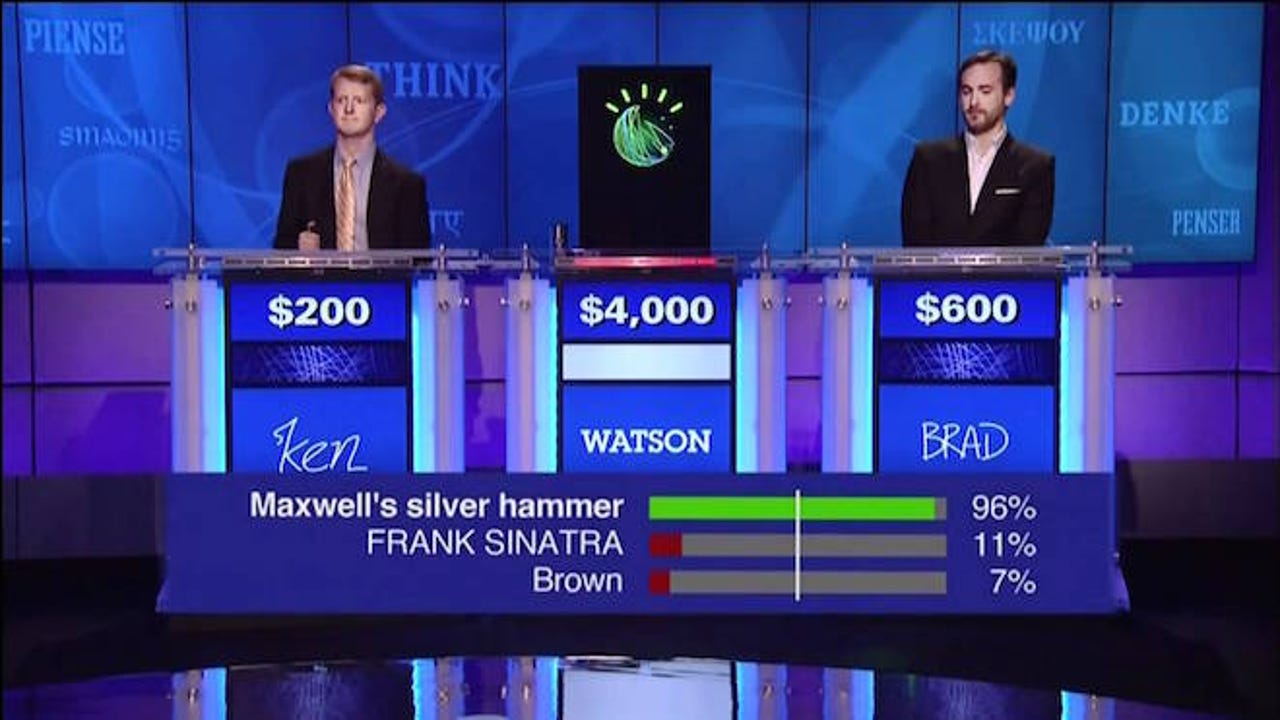After medical school, IBM's Watson gets ready for Apple health apps


Since blowing away the competition on television's Jeopardy! quiz show in 2011, IBM's Watson cognitive computing platform has been studying medicine at the IBM R&D center in Haifa.
"Watson went to medical school, and now it's set to graduate," said Dr Aya Soffer, director of big data and cognitive analytics at the Israel facility. "We've had it study the medical literature, and now it's ready to apply its natural language processing skills to real-life applications."
Just in time, too. Last week, IBM announced the launch of Watson Health Cloud to "provide a secure and open platform for physicians, researchers, insurers, and companies focused on health and wellness solutions".
The platform will be used by health companies Johnson and Johnson and Medtronic, as well as by Apple. The Mac maker has its own platform and hopes to become a top health company itself. It has established a new business unit, called Watson Health Cloud, to administer the big data apps that will use Watson's intelligent analysis and understanding of medical data.
Watson is the supercomputer built by IBM that bested human champions on Jeopardy! in 2011 to take the US quiz show's top prize.
"Watson was built to show the capabilities for artificial intelligence and using and understanding natural language," Gabi Tal, one of the creators of IBM's Global Technology Unit, based in Haifa, said. More than just a supercomputer, Watson is a platform, "a solution that applies advanced analytics to a variety of industries, like healthcare, finance, and customer services," he added.
The Watson platform's cloud interface includes 13 modules that enable developers to integrate its technology into their apps and services. Among them are language identification (figuring out what language text is written in), concept expansion (distinguishing between 'The Big Apple' and a big apple), and user modeling (making predictions about social characteristics based on their writing), and others.
While research and development for Watson has been taking place at IBM research centers around the world for the past several years, Haifa researchers have made a "significant" contribution to the platform, said Soffer.
"We worked extensively with medical experts, especially with oncologists, to develop the intelligence Watson uses to query the medical data and make recommendations. We see Watson as an adjunct for medical personnel, providing insight into issues and problems that will help doctors make better, more informed decisions."
The point of Watson's cognitive technology is to deal with information using natural language processing tech, allowing users to express queries and get back answers that go beyond a lookup in a database. That's especially crucial in medical data, said Soffer.
"There's just too much data for doctors to process, with gigabytes of new data on all things medical coming out every day. Because they are overwhelmed with data already, it's impossible for medical personnel to keep up with the raw data itself, much less put it into context and figure out if it is relevant to a particular case. Using its cognitive technology, Watson understands the queries put to it by medical staff, and searches for the relevant information in all connected databases and putting into the context of a recommendation for specific cases."
Even before the Watson Health Cloud announcement, the platform was being used extensively by hospitals and research centers in the US on oncology issues, including Memorial Sloan Kettering, University of Texas MD Anderson Cancer Center, and the Mayo Clinic. In addition, the platform is being used by the Cleveland Clinic, and the New York Genome Center for genetic research, searching out the sequences that may hold the key to curing or preventing a host of illnesses.
"Pharmaceutical firms are using [Watson] to discover the relationship between diseases, symptoms, nutrition, environmental factors, and more, to determine the best way to treat a disease, much more holistically than would have been possible before," said Soffer. "The information is presented in clear graphs, charts, and reports, all cloud-accessible, and the software learns and remembers based on results, honing its cognitive capabilities to present ever-more accurate results."
IBM isn't the only big data company aiming to improve how medical decisions are made. Recently Microsoft released its Azure Machine Learning platform, a cognitive computing platform whose claim to fame, said Adir Ron of Microsoft Israel, is the development of data models that can be plugged directly into apps that will take information, analyze and query it, and turn it into information that will be greater than the sum of its parts for a user.
"Microsoft wants to democratize the idea of machine learning, connecting it to our other services via the cloud and enabling developers to integrate it into their apps," said Ron. This is similar to how developers work with an API - unlike Watson, which, he said, was aimed at expert programmers, and not app writers.
But IBM has its own APIs for developers, too, said Soffer. "Watson has a collection of APIs and SDKs that can be popped into apps, running on IBM's Bluemix platform as a service. The APIs will query the servers for the relevant data, and the Watson technology will put it into context, providing responses with insight and intelligent analysis."
Given IBM's new partnership with Apple, some of those APIs are likely to end up integrated into apps that will be used with devices like the Apple Watch, to enable apps to put into context the data it collects.
Watson, said Soffer, is the culmination of the big data era, and the gateway into the next one. "We use big data as a bridge between the old concepts of programming, which was based on data extraction, and cognitive computing, where the computer works together with people to solve problems that computers could never have addressed before."
Read more on Watson